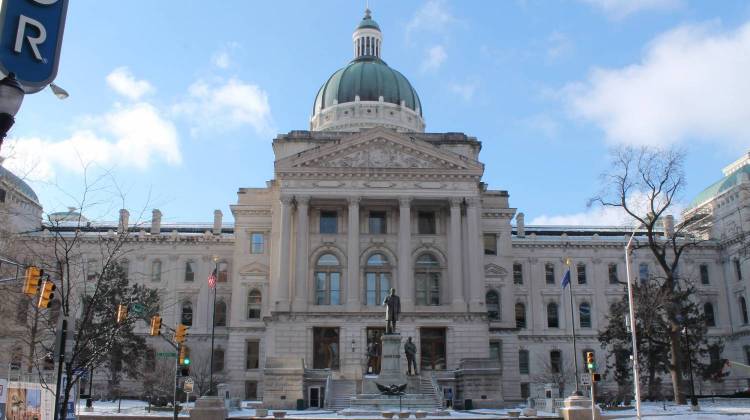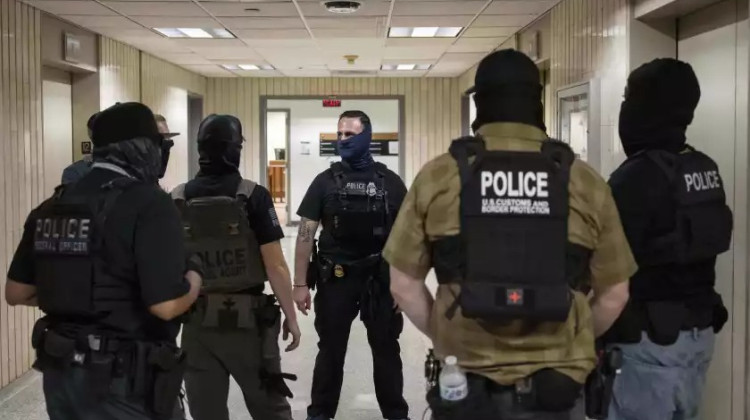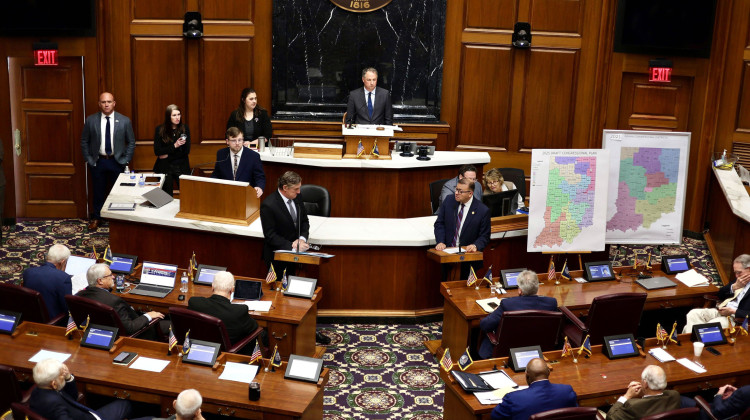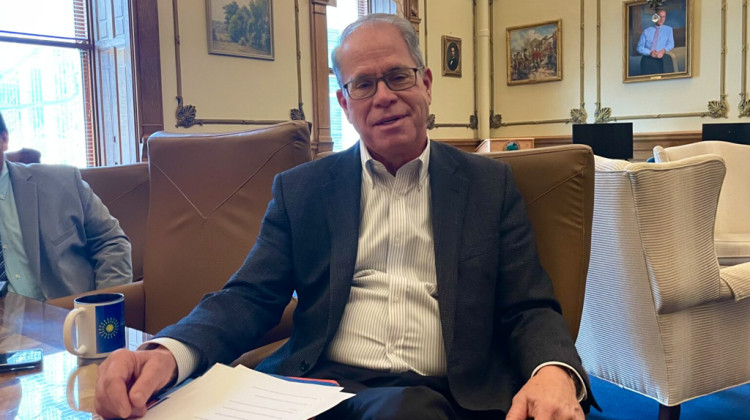BY INDIANA PUBLIC MEDIA NEWS STAFF
A handful of legislation died this week as lawmakers ran out of time in the session. But some measures passed, including CBD legalization and a DACA bill, as the General Assembly wrapped up its 2018 session.
Chaotic Ending Opens Possibility Of Special Session
The session ended in chaos as six measures failed to pass because lawmakers ran out of time before their midnight deadline. That legislation included tax measures, school safety funding, a Muncie-Gary school takeover bill, and autonomous vehicle regulations.
Senate President Pro Tem David Long (R-Fort Wayne) and Gov. Eric Holcomb left open the possibility of a special session later this year to address those issues.
“It’s possible, depending on when people calm down a little bit and think about it, that we might come back for a day and get some of this work done,” Long says.
House Speaker Brian Bosma (R-Indianapolis) says he doesn't see anything on the list of missed bills that would be worth coming back for.
School Financial Management/Gary-Muncie Takeover Bill Does Not Get Vote
The controversial school takeover/financial management bill failed in the final minutes on the last day of session. Lawmakers from Muncie and Gary pushed back on the bill regularly as it moved through the legislature, saying it would unfairly penalize school officials, take power away from local communities, and intervene in financially distressed school districts that have had less than a year to balance school budgets.
Those conversations also overshadowed another aspect of the bill that would have created a dashboard for the state to monitor districts’ financial health – and offer assistance – if too many red flags popped up.
CBD Oil Legalized
The General Assembly voted to legalize cannabidiol, or CBD oil, before its work ended this week. The final package imposes strict testing and labeling requirements on those who distribute or sell the product.
Rep. Matt Pierce (D-Bloomington) says those regulations are burdensome and will drive up the cost for Hoosiers. He also lays the blame for those requirements with a certain group.
“Too many prosecutors around the state have a bad case of reefer madness," Pierce says. "They’re suffering from hallucinations, seeing medical marijuana and illicit THC consumption around every corner.”
The bill is silent on manufacturing – it doesn’t ban Hoosiers from producing CBD oil, but it also doesn’t explicitly allow it.
Lawmakers Approve DACA Professional Licensing Remedy
In the waning hours of the 2018 session, lawmakers approved a bill to ensure Dreamers – recipients of the federal immigration program known as DACA – can get professional licenses from the state.
The Indiana Professional Licensing Agency began denying licenses to those immigrants late last year to comply with a 2011 state immigration law.
But backed by the Holcomb administration, lawmakers took steps in the session’s final weeks to remedy that unintended consequence.
The Senate approved the bill 39-8; the House passed it 85-7.
Workforce Development Bills Pass, Despite Business Apprehension
Though workforce development was perhaps the highest-priority issue for Gov. Eric Holcomb in this year’s legislative session, some are not sold on the two key pieces of legislation passed by Wednesday deadline.
But Indiana Manufacturers Association President and CEO Brian Burton says the state has done enough studies in the past and the need for better worker training is already obvious. “Our check engine light is on, and not only is it on, its blinking," says Burton. "And you have to act now otherwise Indiana is going to lose investment.” Lawmakers also sought to ease worry that replacing Indiana’s State Workforce Innovation Council with the governor’s newly-created workforce cabinet would cause the state to lose tens of millions of dollars in grants.
Rural Broadband Incentives Sent To Governor
A bill that incentivizes telecommunications companies to enter less profitable rural areas passed less than an hour left in session. The House and Senate greenlighted grant funding for companies through the Office of Community and Rural Affairs.
Rep. Matt Pierce (D-Bloomington) supported the measure, but agrees that more needs to be done.
“This is a harmless bill to vote for, but don’t delude yourselves into thinking it’s going to have much of an effect on rural broadband,” Pierce says. “$630,000 is a drop in the bucket, and you have to compete with all of the other things that fund is supposed to take care of.”
Late language added to the bill allows government subsidies to cover up to 80 percent of the initial capital investment and operating costs for providers.
Opioid Treatment Centers To Expand
Indiana lawmakers passed a bill to expand the number of opioid treatment centers in the state. It adds nine centers that will be located at existing hospitals. Each will need approval from the state.
Indiana’s Division of Mental Health and Addiction will approve the treatment center locations.
Gov. Eric Holcomb said in a statement, he plans to sign the legislation.
“I commend lawmakers for advancing this legislation that ensures nearly all Hoosiers can find the help they need within an hour’s drive from their homes,” says Holcomb.
Single Diploma Approved By Lawmakers
Once the governor signs this bill, the state will see a single high school diploma structure, largely to align the state with federal graduation rate calculations. The current structure with the new federal rules would mean some schools could see a big drop in graduation rates, prompting action from the government.
Students will still be able to add distinctions to their diplomas for different academic tracks with the new system, like Core 40, academic or technical honors. It also creates an alternate diploma for students with severe cognitive disabilities, and requires the State Board of Education to look into alternative math courses to Algebra 2. The final version also postpones the timeline for changing the state’s high school graduation exam to either the SAT or ACT until new graduation pathway requirements kick in, in 2021.
School Safety, Funding Fail In The Final Minutes Of Session
The same day students across the nation staged demonstrations around school safety, Indiana lawmakers failed to pass a bill to address the same issue in the final minutes of the 2018 legislative session. It passed the Senate, but lawmakers in the House failed to vote on the bill before the midnight deadline.
The bill originally focused on cyberbullying and human trafficking. After the deadly school shooting in Florida, lawmakers added language to require charter and non-public schools maintain safety and emergency plans, among other changes.
It also would have added $5 million Gov. Eric Holcomb requested for the state’s school safety grant fund.
 DONATE
DONATE








 Support WFYI. We can't do it without you.
Support WFYI. We can't do it without you.